Select Life and Works of William and Catherine Booth (13 vols.)
Digital Logos Edition
Overview
In 1865, in the poverty of London’s East End, William and Catherine Booth founded the East London Christian Mission. They structured the organization as a military operation, with soldiers, officers, and William as its first general. Their goal: bring soup, soap, and salvation to the “down and outs” unwelcome in polite society. One hundred fifty years later, the Salvation Army is one of the largest and most trusted philanthropic organizations in the world, with 1.5 million members on six continents.
Both Catherine and William wrote prolifically. The Select Life and Works of William and Catherine Booth features several of their works on practical religion and the moral and organizational thought behind the Salvation Army—including William’s In Darkest England and the Way Out and Catherine’s Female Ministry: Women’s Right to Preach the Gospel. Also included are two biographical works examining the lives of William and Catherine, respectively. These 13 volumes are an invaluable resource for understanding the history of modern Christian missions and the culture and philosophy of the Salvation Army under the direction of these two remarkable individuals.
The Logos edition of these valuable volumes are enhanced by amazing functionality. Study the Booths’ texts alongside a library of devotional literature and histories. Important terms link to dictionaries, encyclopedias, and a wealth of other resources in your digital library. Powerful searches help you find exactly what you’re looking for. Tablet and mobile apps let you take your study with you. With Logos Bible Software, the most efficient and comprehensive research tools are in one place, so you get the most out of your study.

Key Features
- Ten volumes on practical religion and missions philosophy written by the founders of the Salvation Army
- Insights into an influential movement in modern missions
- Biographical volumes on Catherine, the “mother” of the Salvation Army, and William, its original general
Product Details
- Title: Select Life and Works of William and Catherine Booth
- Volumes: 13
- Pages: 3,395
Individual Titles
- In Darkest England and the Way Out by William Booth
- Purity of Heart: Letters to Salvation Army Officers by William Booth
- Salvation Soldiery by William Booth
- The Seven Spirits: What I Teach My Officers by William Booth
- Sergeant-Major Do-Your-Best: Of Darkington No. 1 by William Booth
- The Salvation Army in Relation to the Church and State by Catherine Booth
- Papers on Practical Religion by Catherine Booth
- Popular Christianity by Catherine Booth
- Godliness by Catherine Booth
- Aggressive Christianity: Practical Sermons by Catherine Booth
- The Authoritative Life of General William Booth by G. S. Railton
- The Life of Catherine Booth: The Mother of the Salvation Army, vol. 1 by Frederick Booth-Tucker
- The Life of Catherine Booth: The Mother of the Salvation Army, vol. 2 by Frederick Booth-Tucker
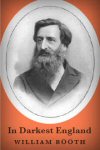
Inspired by Henry Morton Stanley’s In Darkest Africa, William Booth’s In Darkest England and the Way Out examines the social plagues of modern England and puts forth Booth’s “scheme of social selection and salvation.” Based on the strategies Salvation Army soldiers practiced throughout England and the rest of the modern world, the work is divided into two parts: “Darkness” and “Deliverance.” In the first part Booth investigates the plight of what he calls “the submerged tenth” of society, including the homeless, the unemployed, the criminal, and their children. The second part discusses Booth’s proposed system to pick up and take in the down-and-outs.
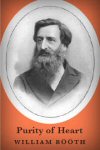
The pure heart described in Matthew 5:8 is a key theme in Salvation Army culture. Purity of Heart is assembled from addresses William Booth delivered at weekly meetings for “Salvation Soldiers.” It is rich with General Booth’s practical and direct philosophy of Christian living.
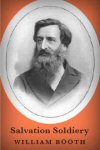
Salvation Soldiery collects the ideas William Booth delivered to his Salvation Soldiers on the field. It is characterized by Booth’s earnest tone, singlemindedly focused on getting more people serving more effectively. Salvation Soldiery provides essential insight into the philosophy and culture of one of the world’s largest and widest reaching charitable organizations.
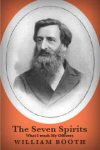
The Seven Spirits provides the essential message of William Booth’s officer training for the Salvation Army. They contain the substance of Booth’s addresses delivered at the 1904 International Congress of the Salvation Army in London. He puts forth the seven spirits he believes an effective officer must be possessed by: the spirit of divine life, of holiness, of supreme devotion, of light, of war, of faith, and of burning love. The Seven Spirits is a valuable key to understanding the philosophy and culture of the Salvation Army.
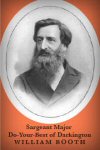
Sergeant-Major Do-Your-Best of Darkington No. 1 contains 26 narrative sketches based on real characters and events written by Booth for the instruction of Salvation Army officers. Each story models an aspect of the character the ideal Salvation Army officer embodies. This volume is an excellent opportunity to gain insight into the history, culture, and philosophy of the Salvation Army.
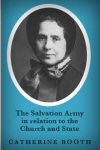
This volume contains Catherine Booth’s cogent defense of the Salvation Army and its relation to church and state, as well as the Army’s economics and mission. Catherine Booth’s sharp writings provide keen insight into the philosophy behind the Salvation Army and the beginnings of modern religious charities.
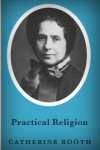
Papers on Practical Religion contains addresses delivered by Catherine Booth on Christian living and service. Among the topics Catherine deals with are parenting, alcohol, anxiety, and women in ministry. Catherine’s characteristic sharp wit is an excellent resource for growth in Christian living and a servant’s heart, as well as insight into the culture of the Salvation Army.
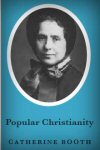
Catherine Booth—the wife of William Booth and the mother of the Salvation Army—developed an independent reputation as a charismatic speaker and spiritually insightful thinker. Popular Christianity provides several of Catherine’s addresses on Christian life and thought in the nineteenth century. This volume is an excellent opportunity to gain insight into the history, culture, and philosophy of the Salvation Army, as well as nineteenth-century Christian living in England.
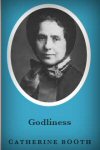
Godliness is a collection of addresses Catherine Booth delivered at Salvation Army services in the West End of London. Catherine—the wife of William Booth and the mother of the Salvation Army—developed an independent reputation as a charismatic speaker and spiritually insightful thinker. This volume is an excellent opportunity to gain insight into the history, culture, and philosophy of the Salvation Army.
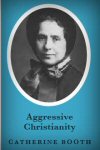
These practical sermons, written and delivered by the mother of the Salvation Army, challenge the Christian out of passivity and into action. The publisher’s preface to this volume remarks, “These sermons are a marvel of direct, earnest appeal to the hearts of all who seek to know the way of the Lord more perfectly. No one can read them without being profoundly stirred, and scripturally enlightened. They are suited to arouse the dormant energies of all classes to a better and more useful life.”
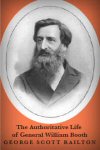
Asked to put the secret of his success into a single sentence, William Booth responded, “I would say that I made up my mind that God Almighty should have all there was of William Booth.” G. S. Railton, Booth’s close friend and co-laborer, writes a compelling biography of William Booth, providing a comprehensive survey of Booth’s life from childhood to old age.
G. S. Railton (1849–1913) was second in command of the Salvation Army under William Booth, and was the first commissioner of the Salvation Army.
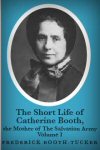
The Life of Catherine Booth is an extensive biography of the mother of the Salvation Army, written by her son-in-law and fellow laborer, Frederick Booth-Tucker. He draws on his own experience with Catherine Booth, as well as that of her closest friends and family. Volume 1 begins with a brief sketch of Catherine’s parents and covers her life up to 1870.
Frederick Booth-Tucker (1853–1929) was born in Monghyr, India, the son of a British civil servant in India. He joined the Indian civil service and was made assistant magistrate in Dharamsala before abandoning his career to join the Salvation Army, serving in the legal department in London. In 1882 he traveled to Bombay, where he ministered to the outcasts of the caste system, taking an Indian name and adopting Indian dress. He married Emma Booth, William and Catherine Booth’s daughter.
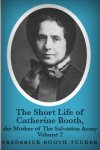
The Life of Catherine Booth is an extensive biography of the mother of the Salvation Army written by her son-in-law and fellow laborer, Frederick Booth-Tucker. He draws on his own experience with Catherine Booth, as well as that of her closest friends and family. Volume 2 covers from William Booth’s illness in 1870 to Catherine’s death in 1890.
Frederick Booth-Tucker (1853–1929) was born in Monghyr, India, the son of a British civil servant in India. He joined the Indian civil service and was made assistant magistrate in Dharamsala before abandoning his career to join the Salvation Army, serving in the legal department in London. In 1882 he traveled to Bombay, where he ministered to the outcasts of the caste system, taking an Indian name and adopting Indian dress. He married Emma Booth, William and Catherine Booth’s daughter.
This title is included in the following collections
You can save when you purchase this product as part of a collection.
Logos 8 Methodist & Wesleyan S...
$349.99$349.99Logos 9 Methodist & Wesleyan S...
$349.99$349.99Logos 8 Methodist & Wesleyan G...
$849.99$849.99Logos 9 Methodist & Wesleyan G...
$849.99$849.99
- $1,499.99
- $1,499.99
- $1,499.99
- $2,999.99
- $21,749.99
- $24,999.99
About the Booths
William Booth (1829–1912) was a British Methodist preacher and was the first general and founder of the Salvation Army. Though the family was relatively wealthy when William was born, through his childhood the family descended into poverty. When he was 13, William was apprenticed to a pawnbroker. During his apprenticeship he became a Methodist and began a poverty ministry as a lay preacher. He became a full-time Methodist minister in 1852 and married Catherine Booth in 1855. He left the pastorate in 1861 to pursue full-time evangelism, and in 1865 he and Catherine founded the East London Christian Mission, renamed the Salvation Army in 1878. He led the organization for 47 years before his death in 1912.
Catherine Booth (1829–1890) was known as the mother of the Salvation Army, which she cofounded with her husband, William Booth. She was a respected writer and sought after speaker. William and Catherine often employed a strategy in which William preached to the poor, while Catherine spoke to the wealthy and focused on gaining financial and political support for the Salvation Army. Catherine died in 1890, at the age of 61.
Reviews
0 ratings

Kenneth Griffey Jr
2/27/2014
The Salvation Army is a movement, that believes in evangizing the world. Booth believed that you had to help people by showing them the love of Christ before you could warm their hearts enough to plant the word of God in them. If you are interested in seeing the bible in action get this series, but don't just let it be another read, do what it says. One day we will all stand before God and give an account of our lives. Don't be in the many crowd that claim to be on the Lord's side but have no works to proove it.